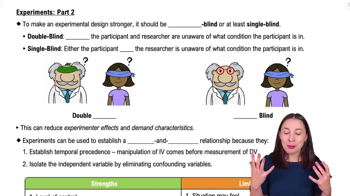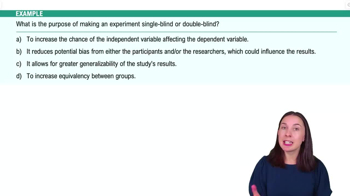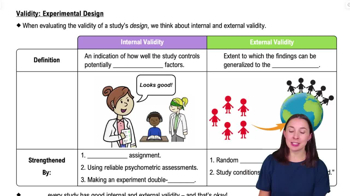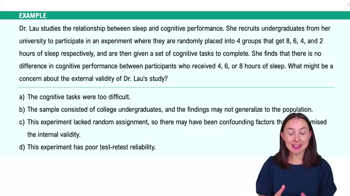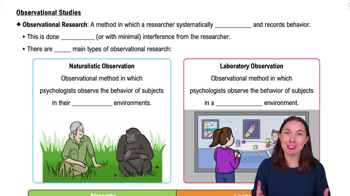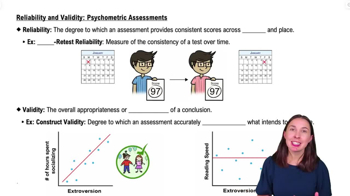Table of contents
- 1. Introduction to Psychology1h 43m
- 2. Psychology Research2h 20m
- 3. Biological Psychology2h 41m
- 4. Sensation and Perception28m
- 5. Consciousness and Sleep32m
- 6. Learning41m
- 7. Memory34m
- 8. Cognition37m
- 9. Emotion and Motivation35m
- 10. Developmental Psychology33m
- 11. Personality48m
- 12. Social Psychology41m
- 13. Stress and Health41m
- 14. Psychological Disorders44m
- 15. Treatment47m
2. Psychology Research
Intro to Research Methods
Struggling with Psychology?
Join thousands of students who trust us to help them ace their exams!Watch the first videoMultiple Choice
A trait theorist would most likely use which of the following personality assessments?
A
Interview
B
Rorschach test
C
California Psychological Inventory
D
Rating scales
 Verified step by step guidance
Verified step by step guidance1
Understand the role of a trait theorist: Trait theorists focus on identifying and measuring individual personality characteristics, often using standardized assessments.
Identify the purpose of personality assessments: These tools are used to evaluate and quantify specific traits or characteristics in individuals.
Consider the options provided: Interviews and Rorschach tests are more subjective and projective, while rating scales and inventories are more objective and structured.
Recognize the nature of the California Psychological Inventory (CPI): The CPI is a self-report inventory designed to assess personality traits in a structured and objective manner, aligning with the goals of trait theorists.
Conclude that a trait theorist would most likely use the California Psychological Inventory, as it provides a reliable and valid measure of personality traits.

 1:46m
1:46mWatch next
Master Roadmap of the Lesson with a bite sized video explanation from Hannah Gordils
Start learningRelated Videos
Related Practice











